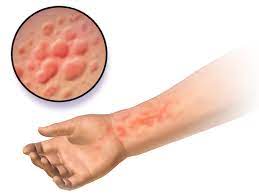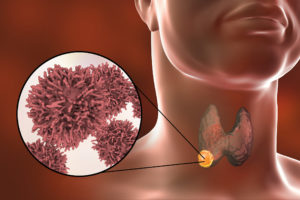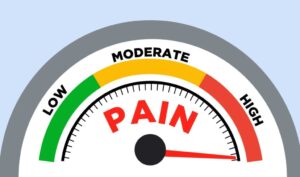Familial Mediterranean Fever (FMF) is a rare genetic condition that is most common in people of Mediterranean and Middle Eastern descent. FMF causes high fever and other symptoms that last for a few days at a time.
Between episodes, most people feel fine. There can be days or years between episodes.
About 80% to 90% of people with FMF have their first episode before they turn 20. About 75% of people with FMF have their first attack before they turn 10 years old.
Causes
FMF is caused by a change in the MEFV gene, which tells white blood cells how to make a protein called pyrin. The changed protein upsets the immune system and makes the body inflamed. Researchers think that changes in the MEFV gene may be a cause of rheumatoid arthritis and other autoimmune diseases. People who just got a diagnosis and people who want to have children should talk to a genetic counselor.
Symptoms
Most people with FMF have their first attack when they are young or going through puberty. It goes on for two or three days. Also, the time between bouts can be anywhere from a few days to a few years. About half of the people who have this condition feel a little bit of pain before the attack starts.
Symptoms and how bad they are vary from person to person, sometimes even between family members. These symptoms may include:
- Abdominal pain
- Having chest pain
- Swollen, painful joints
- Rash from a fever, usually on the legs
- Headache
If nothing is done, protein deposits called amyloids may build up in the organs and tissues of the body. Amyloidosis mostly affects the kidneys and can cause them to stop working.

Diagnosis
- Examen de santé – They will look at the symptoms you or your child is having and rule out anything else that could be causing them.
- About the family – Because this disease is passed down through families, your doctor will ask if you or anyone in your family has been diagnosed with it or has had symptoms that point to it.
- Blood tests – High levels of some white blood cells, a high erythrocyte sedimentation rate (ESR), or a high C-reactive protein may be signs of inflammation in your child’s blood (CRP).
- Urinalysis – Kidney problems caused by FMF attacks show up as high protein levels or small amounts of blood in the urine.
- Test for genes – A DNA test can tell you if your child has only one copy of a MEFV gene mutation or two copies. But MEFV can change in hundreds of ways, so a genetic test could give a false-negative result.
- Don’t delay diagnosis – Make sure to get an FMF diagnosis quickly and for sure. Children with severe stomach pains may be wrongly told they have appendicitis and have surgery they didn’t need.
Treatment
Attacks stop on their own and need painkillers and NSAIDs (such as diclofenac). Colchicine, which is usually used to treat gout, makes FMF attacks happen less often. Colchicine seems to stop attacks, but it’s not clear how. Even though this drug has some side effects, like stomach pain and muscle pain, it may make patients’ lives much better. Most people take 1–2 mg per day. Colchicine treatment slows down the progress of amyloidosis. Interferon is being looked at as a possible treatment. Some say to stop taking colchicine before and during pregnancy, but the data are not consistent, and others say it is safe to take colchicine during pregnancy.
About 5–10% of FMF cases can’t be treated with colchicine alone. In these situations, adding anakinra to the daily colchicine has worked. Canakinumab, an anti-interleukin-1-beta monoclonal antibody, has also been shown to be effective in controlling and preventing flare-ups in patients with colchicine-resistant FMF and in two other autoinflammatory recurrent fever syndromes: mevolonate kinase deficiency (hyper-immunoglobulin D syndrome, or HIDS), and tumor necrosis factor receptor-associated periodic syndrome (TRAPS).
Prognosis
Some kids need help at first to deal with a disease that requires them to take medicine for the rest of their lives. Frequent episodes can make it hard for the child and his or her family to do things like go to school, so teachers, social workers, tutors, and other people in the community may be able to help. Most kids, though, get used to the treatment, and FMF shouldn’t get in the way of a normal education or a productive life as an adult if it’s well managed.



